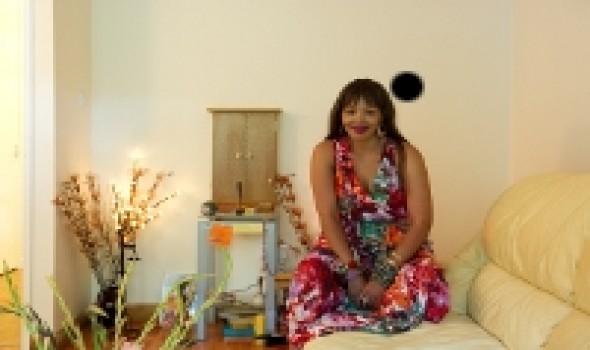Decades of refugee experiences
Decades of refugee experiences

“Having to escape is one of the most terrifying feelings that a human being can experience,” reads one of the nine testimonies featured in the Jewish Museum’s World City: Refugee Stories exhibition. “I have a good life here,” the testimony continues, “but there is a sense of desolation refugees can experience that can break your spirit.” Sadly, it is not only spirit that can be broken. After fleeing Kinshasa in 2002, says Alain, “I was the victim of a racist attack and was blinded in one eye by a white man who stabbed me through the eye with a piece of broken glass.” This example of stupid, unthinking, violent inhumanity is one of the most lowering moments in the small exhibition, along with the quiet, brief descriptions of events that forced the nine featured refugees to seek asylum here. A bigger exhibition might usefully explore those events more deeply, and ask questions about whether, for example, the integration of Holocaust escapees into British life compared with the difficulties experienced by many African and Asian refugees is simply racism in the host community or whether cultural factors also play a big role. One perception reinforced by the obviously statistically unrepresentative sample on show is that being a refugee in Britain is getting harder – though a look round the rest of the museum provides evidence that acceptance of newcomers can fluctuate wildly (according to how it’s presented and local conditions?) and always has to be negotiated. Myriam Bell arrived from Chile in 1974 at the age of 16: “We were treated like human beings and given an opportunity to work and study,” she writes, and adds, “Things have changed for asylum-seekers today. Now it doesn’t feel as if people fleeing persecution have a right to seek protection.” Kumar Kumarendran (arrived 1985) explains how he was granted a student visa and then told the Home Office that it was too dangerous to return to Sri Lanka. He was granted Exceptional Leave to Remain in the UK - “These days it would be impossible to secure asylum in that way.” Kumarendran’s reflects the frustrations of many refugees when he observes, “After the Holocaust the international community said ‘Never Again’. But it happened again in Bosnia, in Rwanda and in Sri Lanka too. It just keeps happening.” * World City: Refugee Stories is at the Jewish Museum, Raymond Burton House, 129-131 Albert Street, London NW1, until16 September . Info: 7284 7384/ email: [email protected] ; website: http://www.jewishmuseum.org.uk/ Article by Daniel Nelson Photograph by Ian Lillicrapp (c)Jewish Museum London


